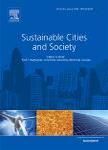版权所有:内蒙古大学图书馆 技术提供:维普资讯• 智图
内蒙古自治区呼和浩特市赛罕区大学西街235号 邮编: 010021

作者机构:Tsinghua Univ Sch Architecture Beijing Peoples R China Univ Texas San Antonio Dept Mech Engn San Antonio TX USA Southwest Jiaotong Univ Sch Mech Engn Chengdu Sichuan Peoples R China
出 版 物:《SUSTAINABLE CITIES AND SOCIETY》 (可持续的城市与社会)
年 卷 期:2019年第46卷
页 面:101393-000页
核心收录:
学科分类:0820[工学-石油与天然气工程] 082803[工学-农业生物环境与能源工程] 08[工学] 0828[工学-农业工程] 0814[工学-土木工程] 0833[工学-城乡规划学]
基 金:National Natural Science Foundation of China Innovative Research Groups of the National Natural Science Foundation of China
主 题:Household appliances Recognition algorithm Bayes classification Occupant behavior Smart grid
摘 要:With the acceleration of global warming and energy shortages, the smart grid has become the goal of power grid development, which makes intelligent household appliance control systems essential. To promote the integration of traditional household appliances into a new electrical system, this study focused on an appliance recognition algorithm applicable to traditional and typical household appliances. Using sequential appliance power consumption data from intelligent power sockets, this study generalized and extracted the characteristics of occupant behavior and power consumption of typical household appliances. A new recognition algorithm for household appliances, based on a Bayes classification model, is presented in this paper. Seven types of household appliances (refrigerator, electric cooker, air conditioner, television, laptop computer, washing machine, and water dispenser) were analyzed in 15 Beijing households. The proposed algorithm was proven to be applicable for appliance recognition.